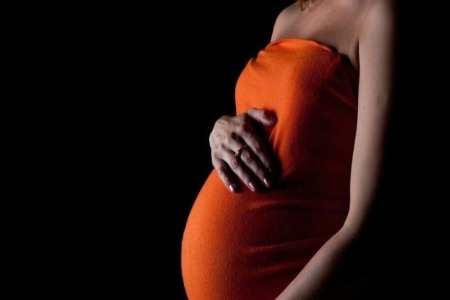
Lack of abortion access severely affects Black women, who are four times more likely to seek abortions than white women, according to 2019 data from the Centers for Disease Control and Prevention (CDC). Many factors lead to Black women getting abortions at higher rates, including less access to contraception, health care, family planning services, and other needs.
This leaves the fate of abortion access and rights in the hands of state lawmakers, governors, and attorney generals. The midterm election season will see new people elected or re-elected to these positions across the country, so here are some key races and ballot measures to keep an eye on.
Pennsylvania
Pennsylvania, which has a governor seat up for grabs, is significant because it provides abortions to out-of-state patients, as explained by Julie Zaebst, a senior policy advocate for the ACLU of Pennsylvania:
What makes Pennsylvania a key state for abortion access is that it services out-of-state patients, as well,” she explained to BuzzFeed. “If Pennsylvania elects an anti-choice legislature and an anti-choice governor, abortion access in the state could disappear overnight as early as January.”
The Democrat gubernatorial candidate is Josh Shapiro, a longtime abortion advocate who vowed to protect reproductive rights if elected. His opponent, Trump-backed Republican Sen. Doug Mastriano, backed a bill banning abortion in 2019 and opposed exceptions to abortion bans, such as rape and incest.
Arizona
A judge ruled on Friday (November 4) that Arizona can keep its near-total abortion ban. The 121-year-old law only allows abortions if the pregnant person’s life is at risk. Now that Republican Gov. Doug Ducey has reached the limit of his term, Democrat Katie Hobbs and Republican Kari Lake seek his position.
Hobbs is Arizona’s current secretary of state and, if elected, vowed to veto any anti-abortion legislation. She expressed on her campaign website that “the decision to have a child should rest solely between a woman and her doctor, not the government or politicians.”
Lake, on the other hand, called abortion “the ultimate sin” in a May interview with KTAR News. She also promised to enact “pro-life legislation” if she wins the race.
Georgia
Republican Gov. Brian Kemp and Democrat Stacey Abrams are facing off once again, with the latter having the state’s six-week abortion ban in her sights. The law was enacted in 2019, but faced years of legal battles. A judge ruled in favor of the legislation in July.
“In a state that is already first in maternal mortality, sixth highest in infant mortality, and one of twelve states that refuses to expand Medicaid and provide health care to low-income communities, this ruling cements the failures of this administration and devastates the realities of women,” Abrams wrote in a statement in response to the recent ruling.
Kemp promises to keep supporting the law if he’s re-elected: “Georgians should rest assured that I will continue to fight for the strongest pro-life law in the country,” per a May statement on Twitter.
Wisconsin
The overturning of Roe v. Wade has opened the door for an 1894 ban on abortion in Wisconsin to be enforced. It only has an exception for saving the life of a pregnant person. Two races will determine whether abortion rights will erode or persevere in the Badger State: governor and attorney general.
Gov. Tony Evers and State Attorney General Josh Kaul have worked tirelessly to keep abortion protections in Wisconsin, both of them being up for re-election. Evers says he would grant clemency to doctors prosecuted by a district attorney, and Kaul vows not to enforce the archaic ban.
As for their Republican opponents, both of them support the 1894 law. Eric Toney, who’s running for attorney general, pronounced himself “pro-life” and will enforce the ban if elected. Gubernatorial candidate Tim Michels, however, has softened his stance to include exceptions for rape and incest.
Kentucky
Kentucky voters will decide if abortion rights will be removed from the state’s constitution. On this year’s ballot, Amendment 2 asks voters to say yes or no to this phrase: “To protect human life, nothing in this Constitution shall be construed to secure or protect a right to abortion or require the funding of abortion.”
There’s a statewide abortion ban that went into effect on July 15, except in cases when a pregnant person’s life or health is endangered. If Amendment 2 passes, it would deny any constitutional protections for abortion rights. It would also lead to a total ban, including cases of rape, incest, and if the pregnant person’s life is at risk. If not, it would allow the latter exception to remain legal.
Michigan
A judge recently ruled that Michigan’s 1934 law banning abortions with no exceptions is unconstitutional, but GOP state lawmakers could appeal the decision. A ballot measure called Proposal 3 may eradicate that decades-old legislation altogether.
If it passes, it would enshrine “reproductive freedom” into the state’s constitution, including abortions, contraception, prenatal care, miscarriage management, and IVF. If the majority of voters say no, then abortion regulations will remain in the hands of state judges and lawmakers.
Get the latest news 24/7 on The Black Information Network. Listen now on the iHeartRadio app or click HERE to tune in live.
